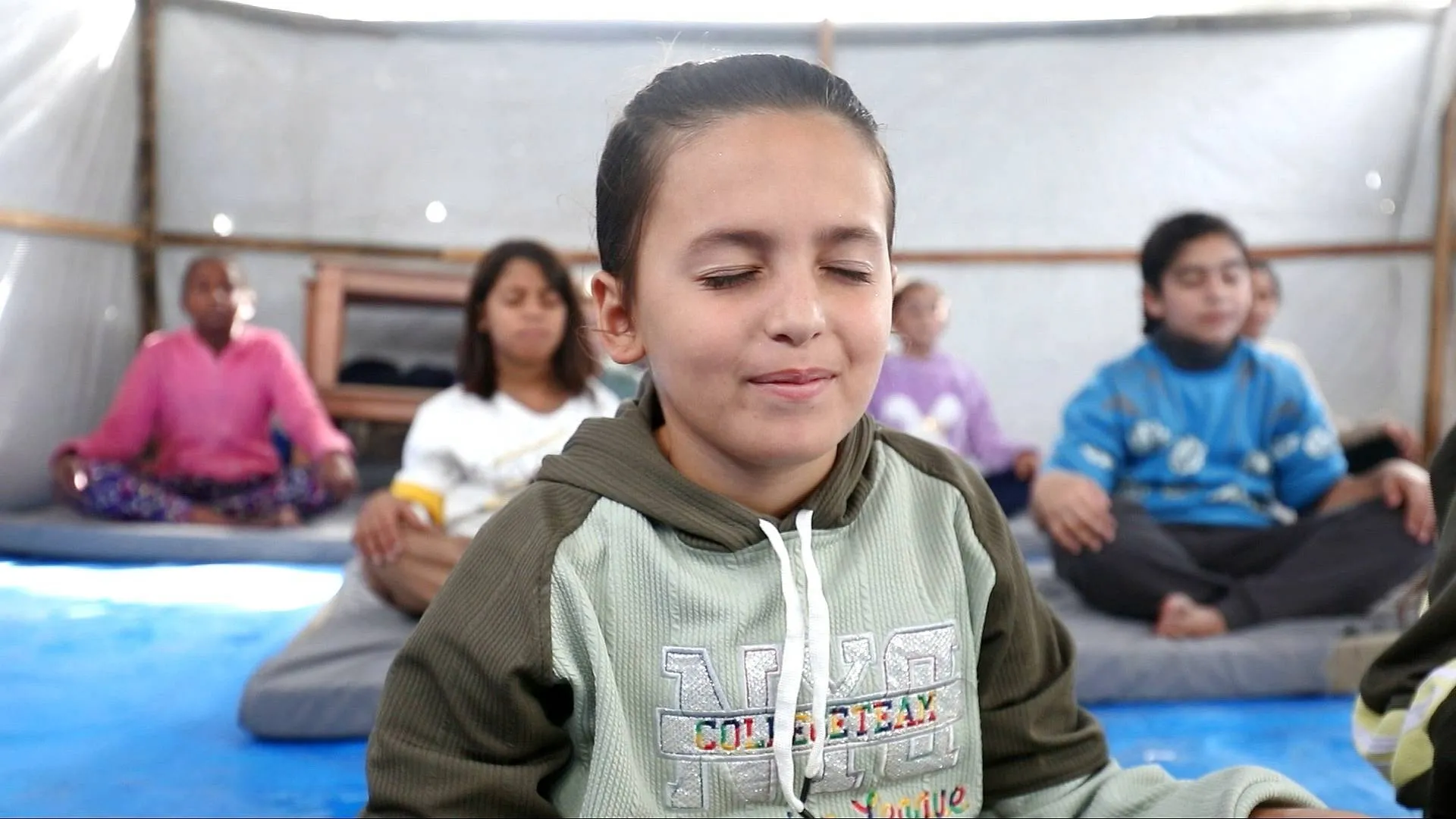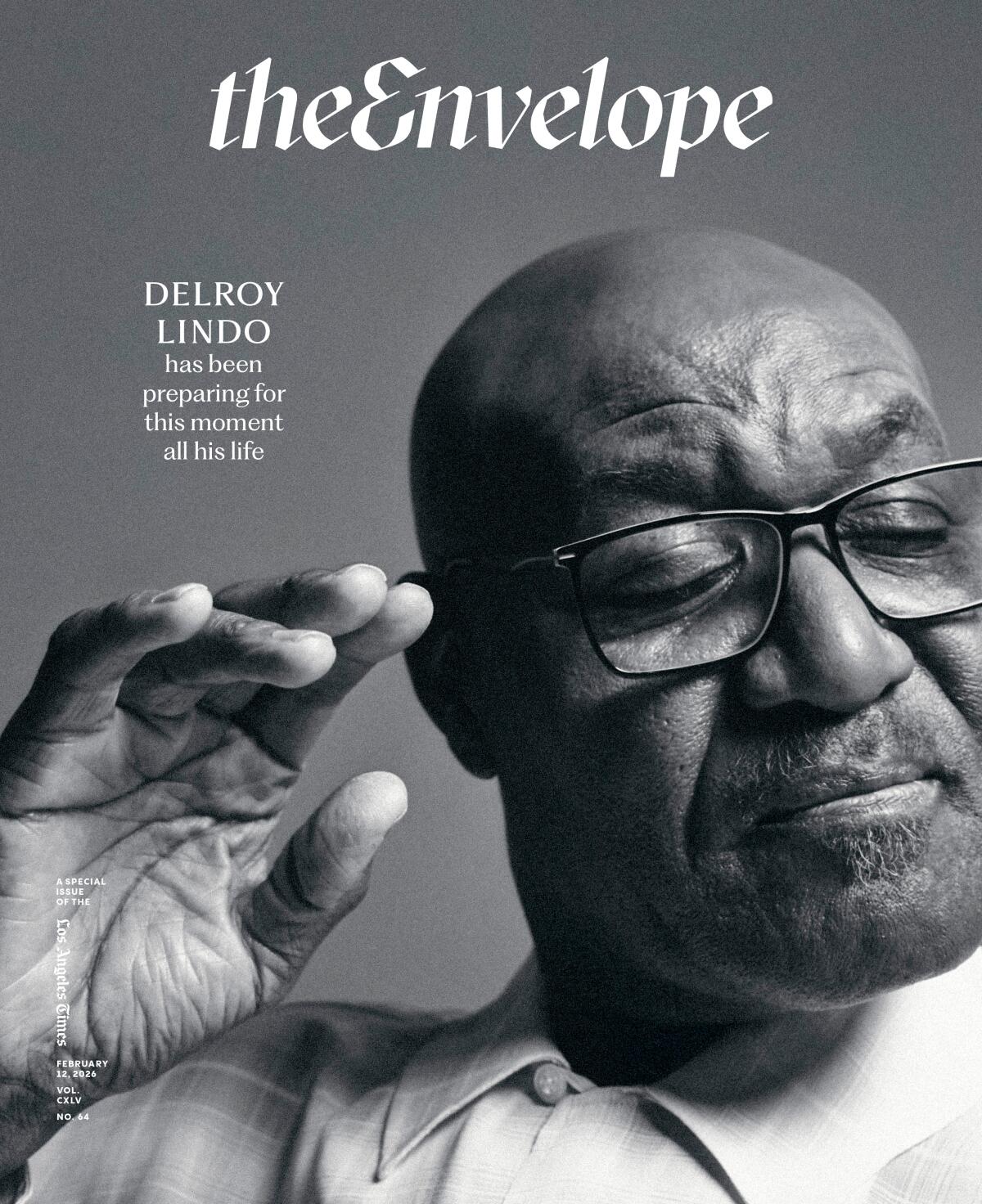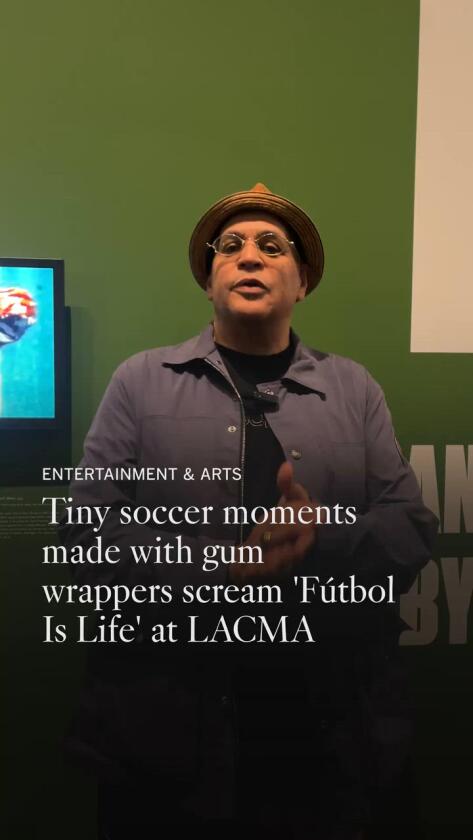Lakers used to be good in late, critical moments. What happened?
From Broderick Turner: The losses are mounting for the Lakers in the most excruciating of ways. They’ve lost their last two games in the final second, and it’s eating at them because they used to be so good in late, critical moments.
The Lakers fell to the Phoenix Suns 113-110 on Thursday after Austin Reaves missed a three-point shot as time expired. The injury-depleted Suns earned the win on a three-pointer by Royce O’Neale with ninth-tenths of a second left.
The Lakers have lost three consecutive games for the third time this season. They were blown out by the Boston Celtics on Sunday before losing by one at home to the Orlando Magic on Tuesday when Luka Doncic passed up a three and threw the ball to LeBron James, who missed a hurried, last-second three.
Against the Suns, the Lakers rallied from 12 points down in the fourth quarter after Doncic went to work. He hit back-to-back threes during the comeback and finished with 41 points, eight rebounds and eight assists.
The Lakers made it a clutch game, the kind in which they’ve been an NBA-best 16-5. Still, they lost.
“Our losses are louder than other teams’ because we’re the Lakers and because of the way we lose,” coach JJ Redick said. “Tonight was a one-possession clutch game, which, now we’ve lost a few of those. But we’ve been great for the most part in the clutch all year.”
The Lakers (34-24) tied the score twice in the final minute, first on a three by Reaves and then on a tip-in by James, who had 15 points, six rebounds and five assists, with 22.7 seconds left.
Tyler Glasnow has a ‘positive’ debut

Dodgers pitcher Tyler Glasnow made his first start of spring training a good one, pitching two perfect innings and striking out four against the Chicago White Sox on Thursday at Camelback Ranch.
(Norm Hall / Getty Images)
From Jack Vita: Dodgers right-hander Tyler Glasnow is an admitted overthinker. But you wouldn’t know it based on his efficient first spring training start Thursday against the Chicago White Sox at Camelback Ranch.
Glasnow pitched two-plus innings, retiring the first six batters before coming out after giving up a single to start the third inning. Using a pitch mix that included a fastball that sat at 97 mph, Glasnow struck out the side in the first inning before recording another strikeout to close out the second. Having thrown just 28 pitches, Glasnow started the third inning and threw three more pitches before coming out of the Dodgers’ 7-6 win.
“Very in rhythm,” manager Dave Roberts said after the game. “Very efficient, used his entire pitch mix, it was really good. Good to see him get into the third inning. Positive day.”
The 32-year-old entering his third season with the Dodgers credits his coaches for keeping his mechanics on point.
“It allows me to just go out and pitch and be athletic,” Glasnow said after his outing. “I’m able to just go out and play baseball as opposed to trying to tinker and fix certain stuff.”
UCLA gymnastics preps for postseason

UCLA gymnast Sydney Barros performs her floor exercise routine at Pauley Pavilion on Jan. 17.
(Gina Ferazzi / Los Angeles Times)
From Anthony Solorzano: With the Big Ten title on the line during the Big Four Meet on Friday at Pauley Pavilion, the UCLA gymnastics team is focused on what it can control.
“Our goal is to go out there and just do what we’ve been doing all season long,” coach Janelle McDonald said. “Hitting great gymnastics and continuing to just build the confidence on the competition floor before we head into [the] postseason.”
Entering the season, the Bruins had a few elite veterans and an otherwise young team. The steady growth of underclassmen has helped UCLA earn its No. 5 national ranking and move a victory away from claiming its second consecutive Big Ten title.
“Last year, when we came into the Big Ten, we really wanted to make a statement and I think we did just that,” McDonald said. “Coming in this year with a younger team, hungry to just continue that, has just been really special.”
Alysa Liu gets the mural treatment

Artist Gustavo Zermeño Jr. paints a mural dedicated to Olympic gold medalist skater Alysa Liu on Wednesday at the corner of W. 156th and Crenshaw Boulevard in Gardena. “I like that it’s a little rough around the edges, but beautiful at the same time,” he said of the portrait.
(Ronaldo Bolanos / Los Angeles Times)
From Chuck Schilken: U.S. figure skater Alysa Liu made quite an impression at the Milan-Cortina Olympics with her unique style, her compelling backstory and, of course, her gold medals in the women’s singles competition — the first for an American woman since 2002 — and in the team event.
Her feats captured the attention of local artist Gustavo Zermeño Jr. He wanted to be sure to capture all of it in his new mural paying tribute to the 20-year-old athlete in Gardena.
“Obviously her winning gold was the main factor” in his choosing to paint Liu, Zermeño said.
But once the Mexican American artist learned more about the Chinese American skater, he found inspiration in other aspects of her life as well. That includes the Oakland native’s two-year retirement from the sport starting at age 16, her enrollment at UCLA and her decision to express herself in her own way.
Hilary Knight won’t ‘distasteful joke’ bother her

United States’ Hilary Knight (21) celebrates after scoring during the women’s ice hockey gold medal game between the United States and Canada at the Milan-Cortina Winter Olympics on Feb. 19.
(Petr David Josek / Associated Press)
From Chuck Schilken: U.S. women’s hockey star Hilary Knight wasn’t a fan of a comment that President Trump made about her team days after it claimed Olympic gold at the Milan-Cortina Games.
“I thought it was sort of a distasteful joke, and unfortunately, that is overshadowing a lot of the success of just women at the Olympics carrying for Team USA and having amazing gold medal feats,” Knight said Wednesday during an appearance on ESPN’s “SportsCenter.”
On Feb. 19, the U.S. defeated Canada 2-1 in overtime for a third gold medal in women’s hockey; the team won gold in 1998 and 2018. Three days later, the U.S. men’s hockey team also won gold by defeating Canada 2-1 in overtime.
Kings lose in blowout to Oilers

Edmonton Oiles captain Connor McDavid, center, battles Kings forward Trevor Moore, left, and defenseman Mikey Anderson for the puck during the first period of the Kings’ 8-1 loss Thursday at Crypto.com Arena.
(Ric Tapia / Getty Images)
From the Associated Press: Connor McDavid secured his ninth 100-point season with a goal and an assist, Leon Draisaitl had a goal and three assists, and the Edmonton Oilers snapped their four-game skid with an 8-1 victory over the Kings on Thursday night.
McDavid scored his 35th goal and Draisaitl got his 30th during his fourth four-point game of the season as the Oilers again routed the opponent they’ve knocked out of the first round of the Stanley Cup playoffs in each of the past four seasons.
The game marked the biggest margin of defeat against the Kings this season.
Clippers fall to Timberwolves

Clippers guard Kris Dunn drives to the basket in front of Minnesota’s Donte DiVincenzo during the Clippers’ 94-88 loss Thursday at Intuit Dome.
(Kyusung Gong / Associated Press)
From the Associated Press: Anthony Edwards scored 31 points, Donte DiVincenzo added 18 and the surging Minnesota Timberwolves beat the Clippers 94-88 on Thursday night.
Jaden McDaniels and Ayo Dosunmu each scored 12 points and Rudy Gobert had 13 rebounds to help the Timberwolves improve to 5-1 since Feb. 9 and 3-1 since the All-Star break.
Edwards, returning to the site of the All-Star Game, where he was the MVP, was 12 for 24 from the floor and sealed the victory with a step-back three-pointer over two defenders for a 92-88 lead with 42.9 seconds left.
Clippers-Timberwolves box score
Manny Pacquiao delivers counterpunch

Manny Pacquiao at MGM Grand Hotel & Casino in Las Vegas in July 2025.
(Ethan Miller / Getty Images)
From Steve Henson: The case can be made that those who conceived and arranged the 2015 boxing match between Floyd Mayweather Jr. and Manny Pacquiao deserve to be compensated.
After all, the “Fight of the Century” at the MGM Grand Garden Arena in Las Vegas — won by Mayweather — set records with 4.6 million pay-per-view buys and $72 million in ticket sales.
So it’s no surprise that long after both boxers slipped comfortably into (temporary) retirement, legal fights endured over even slim slices of that cash-stuffed pie.
For 10 years — and counting — lawyers and judges have attempted to determine what claimants are due and whether Pacquiao in particular suffered reputational damage along the way.
CHRB dashes hopes of Northern California
From John Cherwa: The hopes of Northern California racing and breeding interests were once again dashed when the California Horse Racing Board refused to license short racing dates to the Tehama District Fair and the Humboldt County Fair on Thursday.
Rather than a discussion about how to grow the sport, the 2-hour 45-minute meeting was mostly about how bad the state of racing is in the state and a determination that the future of Southern California racing is in jeopardy if it isn’t given every advantage available.
That advantage is the amount of money that goes to the host track from advance deposit wagering (ADW) and computer assisted wagering (CAW). If Tehama and Humboldt were racing, then money bet by any means in Northern California would stay there, the way it was since the start of ADW until shortly after the closing of Golden Gate Fields in Berkeley.
This day in sports history
1918 — The first neutral site game in NHL history is held in Quebec City. Frank Nighbor scores twice in the first period to lead the Ottawa Senators to a 3-1 win over the Montreal Canadiens.
1955 — Boston beats Milwaukee 62-57 at Providence, R.I. in a game which set records for fewest points scored by one team, and by both teams, since the introduction of the 24-second clock.
1959 — The Boston Celtics beat the Minneapolis Lakers 173-139 as seven NBA records fall. The Celtics set records for most points (179), most points in a half (90), most points in a quarter (52) and most field goals (72). Boston’s Tom Heinsohn leads all scorers with 43 points and Bob Cousy adds 31 while setting an NBA record with 28 assists.
1966 — Richard Petty wins the rain-shortened Daytona 500 by more than a lap at a speed of 160.927 mph. Petty holds the lead for the last 212 miles of the scheduled 500-mile event, which is called five miles from the finish. Cale Yarborough finishes second.
1977 — Stan Mikita of the Chicago Black Hawks scores his 500th goal in a 4-3 loss to the Vancouver Canucks.
1982 — Florida apprentice Mary Russ becomes the first female jockey to win a Grade I stakes in North America when she captures the Widener Handicap aboard Lord Darnley at Hialeah (Fla.) Park.
1992 — Prairie View sets an NCAA Division I record for most defeats in a season with a 112-79 loss to Mississippi Valley State in the first round of the Southwestern Athletic Conference tournament. Prairie View’s 0-28 mark breaks the record of 27 losses shared by four teams.
1994 — Sweden wins its first hockey gold medal, defeating Canada 3-2 in the first shootout for a championship at the Winter Olympics in Lillehammer, Norway. Canada is 1:49 away from its first championship in 42 years when Magnus Svensson’s power-play goal ties it at 2. Paul Kariya’s shot is stopped by Sweden’s Tommy Salo after Peter Forsberg puts Sweden ahead on his team’s seventh shot.
1998 — Indiana’s 124-59 victory over Portland marks the first time in the NBA’s 51-year history that one team scores more than twice as many points as the other.
2005 — David Toms delivers the most dominant performance in the seven-year history of the Match Play Championship, winning eight out of nine holes to put away Chris DiMarco with the largest margin of victory in the 36-hole final. The score 6 and 5, could have been much worse as Toms was 9 up at one point.
2006 — Effa Manley is the first woman elected to the baseball Hall of Fame. The former Newark Eagles co-owner is among 17 people from the Negro Leagues and pre-Negro Leagues chosen by a special committee.
2010 — Steven Holcomb drives USA-1 to the Olympic gold medal in four-man bobsledding, ending a 62-year drought for the Americans in the event. Holcomb’s four-run time was 3:24.46, with Justin Olsen, Steve Mesler and Curt Tomasevicz pushing for him.
2015 — Travis Kvapil’s NASCAR Sprint Cup car is stolen early in the day from a hotel parking lot, forcing him to withdraw from a race at Atlanta Motor Speedway. The team didn’t have a backup car in Atlanta, so it’s forced to drop out when the stolen machine couldn’t be located in time for NASCAR’s mandatory inspection.
Compiled by the Associated Press
Until next time…
That concludes today’s newsletter. If you have any feedback, ideas for improvement or things you’d like to see, email me at houston.mitchell@latimes.com. To get this newsletter in your inbox, click here.









